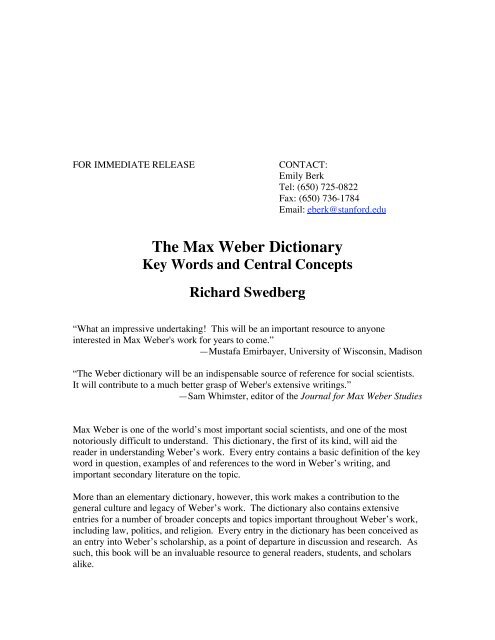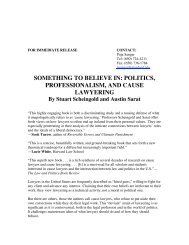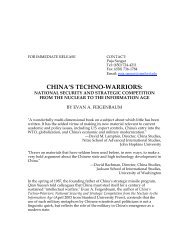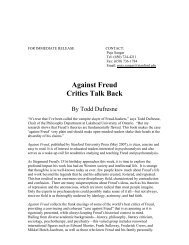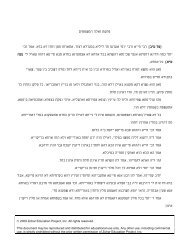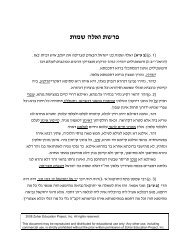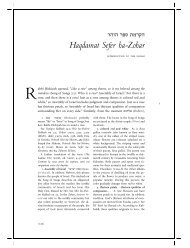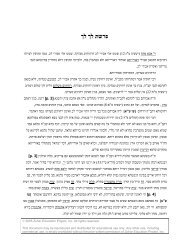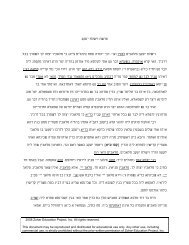The Max Weber Dictionary - Stanford University Press
The Max Weber Dictionary - Stanford University Press
The Max Weber Dictionary - Stanford University Press
Create successful ePaper yourself
Turn your PDF publications into a flip-book with our unique Google optimized e-Paper software.
FOR IMMEDIATE RELEASE<br />
CONTACT:<br />
Emily Berk<br />
Tel: (650) 725-0822<br />
Fax: (650) 736-1784<br />
Email: eberk@stanford.edu<br />
<strong>The</strong> <strong>Max</strong> <strong>Weber</strong> <strong>Dictionary</strong><br />
Key Words and Central Concepts<br />
Richard Swedberg<br />
“What an impressive undertaking! This will be an important resource to anyone<br />
interested in <strong>Max</strong> <strong>Weber</strong>'s work for years to come.”<br />
—Mustafa Emirbayer, <strong>University</strong> of Wisconsin, Madison<br />
“<strong>The</strong> <strong>Weber</strong> dictionary will be an indispensable source of reference for social scientists.<br />
It will contribute to a much better grasp of <strong>Weber</strong>'s extensive writings.”<br />
—Sam Whimster, editor of the Journal for <strong>Max</strong> <strong>Weber</strong> Studies<br />
<strong>Max</strong> <strong>Weber</strong> is one of the world’s most important social scientists, and one of the most<br />
notoriously difficult to understand. This dictionary, the first of its kind, will aid the<br />
reader in understanding <strong>Weber</strong>’s work. Every entry contains a basic definition of the key<br />
word in question, examples of and references to the word in <strong>Weber</strong>’s writing, and<br />
important secondary literature on the topic.<br />
More than an elementary dictionary, however, this work makes a contribution to the<br />
general culture and legacy of <strong>Weber</strong>’s work. <strong>The</strong> dictionary also contains extensive<br />
entries for a number of broader concepts and topics important throughout <strong>Weber</strong>’s work,<br />
including law, politics, and religion. Every entry in the dictionary has been conceived as<br />
an entry into <strong>Weber</strong>’s scholarship, as a point of departure in discussion and research. As<br />
such, this book will be an invaluable resource to general readers, students, and scholars<br />
alike.
Richard Swedberg is Professor of Sociology at Cornell <strong>University</strong>. Known primarily for<br />
his work in economic sociology, his publications include <strong>The</strong> Handbook of Economic<br />
Sociology and Sociology of Economic Life. He is also the author of <strong>Max</strong> <strong>Weber</strong> and the<br />
Idea of Economic Sociology.<br />
352 pp. To be published January 2005<br />
$55.00 (cloth) 0-8047-5094-7<br />
$22.95 (paper) 0-8047-5095-5<br />
For further information or to contact the author, please contact Emily Berk by telephone<br />
at (650) 725-0822 or by email at eberk@stanford.edu.


